Breaking News: Hillary Clinton’s Alarming Call to Jail Conspiracy Believers Ahead of Election
Ready to uncover the truth? Sick of the lies? Join our Telegram Channel now. It’s time for the real story! My gratitude to all my readers!
BREAKING: Hillary Clinton recently sparked outrage by calling for the jailing of Americans who believe in conspiracy theories ahead of the November election. Her controversial remarks on free speech, media control, and political dissent raise concerns about authoritarianism and the future of democracy in the U.S. Read more about this alarming shift in political rhetoric and its potential impact on freedom of thought.
Former Secretary of State and two-time presidential candidate, Hillary Clinton, made an inflammatory statement on The Rachel Maddow Show this past Monday. Her remarks have ignited a firestorm of controversy, with critics and proponents alike debating the implications of what can only be described as an authoritarian stance. Clinton, visibly incensed, suggested that American citizens who subscribe to “conspiracy theories” must be jailed before the November election to secure what she perceives as a stable democratic process.
This article delves deeply into Clinton’s statements, exploring their meaning, implications, and possible motivations. The timing of her incendiary remarks, coinciding with the lead-up to the highly anticipated November elections, raises concerns about freedom of speech, political discourse, and the role of the government in moderating the beliefs of its citizens. We unpack her rhetoric, analyze the broader implications, and ask, what does this mean for the future of democracy?
Don’t Miss This:
Clinton’s public statement calls for extreme measures, targeting a subset of American citizens—those who question mainstream narratives. Her exact words were, “The press needs to create a consistent narrative about how dangerous Trump is,” and, “He is a danger to our country and the world.” These words are chilling, not just because they single out a political opponent, but because they advocate for a systematic suppression of dissent.
While her immediate concern seems to revolve around her former political rival Donald Trump, her comments stretch beyond Trump himself. Her focus on “conspiracy theorists” includes everyday citizens who may harbor doubts about the government, question media narratives, or share concerns on social media. These individuals, in Clinton’s view, present such a threat to the democratic process that they should be incarcerated.
MAKE AMERICA HEALTHY AGAIN: HOME RETREAT | HOW TO RENEW YOUR CELLS IN 7 DAYS
Let’s break down Clinton’s statement and the implications that accompany it. First, her call for the press to create a consistent narrative raises eyebrows. In a society built on the freedom of the press and freedom of speech, the idea of an orchestrated, uniform media message is deeply concerning. This echoes a call for propaganda, the systematic use of media to manipulate public opinion, often seen in autocratic regimes.
Second, Clinton’s characterization of Trump as a “danger to the world” mirrors extreme rhetoric used in polarizing political climates. However, her follow-up to this statement takes an even darker turn: she asserts that Americans who engage in alternative viewpoints or conspiracy theories must be rounded up and jailed. This marks a clear departure from her typical political discourse and enters into a realm where speech, thought, and belief are punishable offenses.
SEE ALSO: Red Boost Superfood — A Natural Path to Male Vitality: The Alpha Male Blueprint Revealed!
Is this just hyperbole? Or is Clinton laying the groundwork for a broader political strategy where dissent, especially when it undermines her ideological stances, is not tolerated?
The Role of Conspiracy Theories in American Politics
It’s important to address what Hillary Clinton means when she refers to “conspiracy theories.” While conspiracy theories often have a negative connotation, the term has become a blanket label for any idea that contradicts mainstream media or government-sanctioned narratives. This can include concerns about election integrity, skepticism toward the COVID-19 pandemic, or investigations into political corruption.
The term “conspiracy theory” is weaponized to discredit legitimate questioning and dissent. In the past, movements that were initially labeled as conspiracy theories—such as Watergate or the Pentagon Papers—were later proven to be true or, at the very least, worthy of public inquiry. To label an entire subset of ideas as dangerous and to advocate for the imprisonment of those who entertain them is a dangerous precedent for any democracy.
It’s a slippery slope: Who defines what is a conspiracy? What happens to those who are wrongfully accused of peddling such ideas? The implications of Clinton’s statement are vast, extending beyond the immediate political landscape and into the foundational principles of free speech and thought.
Guides and Angels: Embracing the Presence of Spiritual Guides in Our Lives!
Clinton’s Second Assassination Comment: Heightened Emotions or a Calculated Statement?
During her interview, Hillary Clinton also expressed frustration that the second assassination attempt against Donald Trump had failed. While this comment was delivered in a moment of clear frustration, it is one of the most alarming pieces of her rhetoric. Whether a slip of the tongue or a calculated remark, the notion that a former Secretary of State would even refer to assassination attempts against a former president in such a cavalier manner is deeply unsettling.
This raises the question: was Clinton’s comment meant to incite fear or rally her base? By positioning Trump as an existential threat to the nation, she paints his supporters—many of whom hold alternative views—as a danger to democracy itself.
The Attack on Trump and Its Broader Implications
Let’s not forget the larger context here. Donald Trump has been the focus of attacks from both sides of the political aisle since his rise in 2016. While Trump’s policies and rhetoric certainly divide opinion, the continual framing of him as a uniquely dangerous figure creates an environment where extreme actions against him and his supporters are not only condoned but encouraged.
Hillary Clinton’s frustration with the failure of attempts to take Trump out of the political picture may reflect the growing desperation of the Democratic Party. With Trump’s enduring popularity, especially among conservative voters, the party may be resorting to more drastic rhetoric. The call to imprison dissenters, paired with a casual reference to failed assassination attempts, underscores a radical shift in political tactics.
The Danger of Criminalizing Thought
One of the most disturbing elements of Clinton’s recent remarks is the notion of criminalizing thought. Belief in conspiracy theories, for whatever reason, is now being positioned as a crime. Yet, history teaches us that free societies must allow for the expression of diverse viewpoints, including those that challenge or contradict mainstream narratives.
In authoritarian regimes, dissenters are routinely imprisoned for holding beliefs that run counter to the ruling party’s narrative. Clinton’s suggestion brings the United States worryingly close to such a model. Jailing conspiracy theorists is not a solution to political unrest; it is the very cause of unrest. When people are not allowed to express their concerns, however unfounded, their frustrations simmer beneath the surface, eventually leading to greater conflict.
The Role of Media in Shaping Narratives
Clinton’s directive that the press should create a “consistent narrative” cannot be overlooked. The media’s role in a democratic society is to report facts and present multiple perspectives so that the public can make informed decisions. The call for a uniform narrative undermines the integrity of the Fourth Estate and its duty to act as a check on government power.
In advocating for a singular message, Clinton suggests that any alternative viewpoint should be silenced, thereby limiting the scope of public discourse. This type of media manipulation is a hallmark of totalitarian regimes, where the government uses its influence over the media to control the populace and suppress dissent.
Where Do We Go From Here?
With the November election looming, Hillary Clinton’s remarks could very well signal a turning point in American political life. Her call to jail conspiracy believers is not just an attack on a segment of the population; it’s an attack on the principles that the nation was founded upon. Freedom of speech, freedom of thought, and the right to question authority are pillars of democracy.
As we approach the election, it’s imperative that we remain vigilant in defending these freedoms. Clinton’s remarks may be shocking, but they also serve as a wake-up call to the dangers of allowing political leaders to define what is or isn’t acceptable discourse. Jailing citizens for their beliefs is not the answer to political division—it’s the path to authoritarianism.
In this pivotal moment in American history, Hillary Clinton’s incendiary remarks should not be taken lightly. Her call to imprison conspiracy theorists represents an alarming shift toward authoritarianism and must be condemned by all who value freedom of speech and freedom of thought.
The notion that we can stifle dissent by jailing those who hold alternative views is a dangerous precedent. As a nation, we must resist any attempts to undermine the fundamental principles of democracy. The future of our country depends on it.
In conclusion, as we head toward November’s election, we must remain steadfast in our commitment to protect free speech, diverse opinions, and the right to dissent. The alternative is a society where fear reigns, and freedom of thought is shackled by the very leaders sworn to defend it.
Hillary Clinton tonight on MSNBC:
"The press needs to create a consistent narrative about how dangerous he is"
"He is a danger to our country & world" pic.twitter.com/7rBt7zcVGY
— End Wokeness (@EndWokeness) September 17, 2024

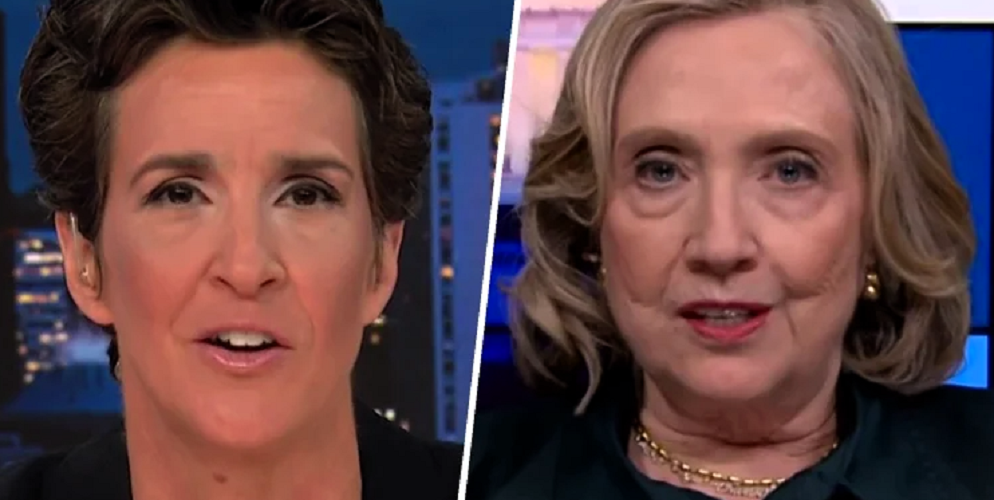

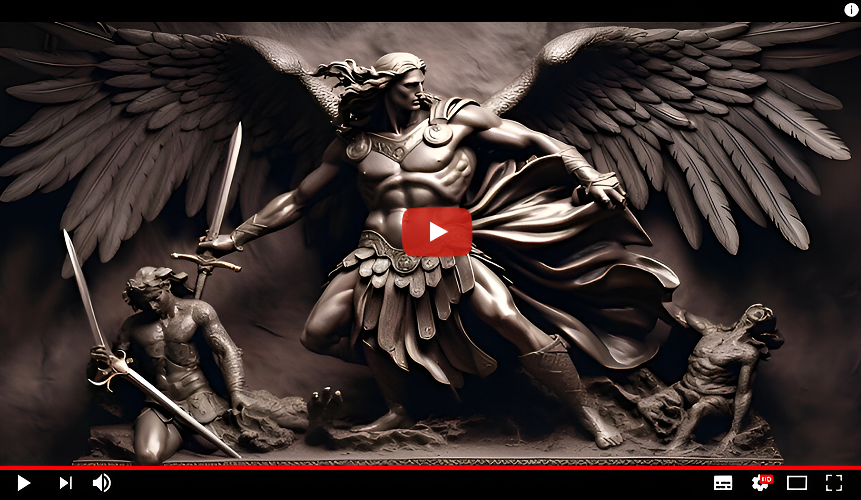
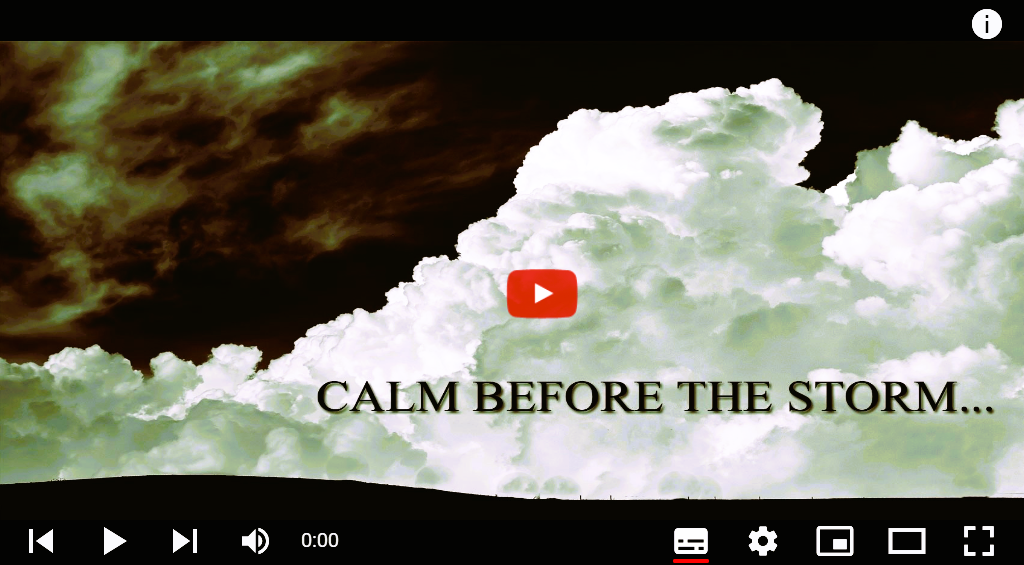




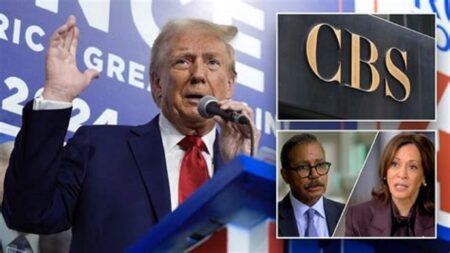
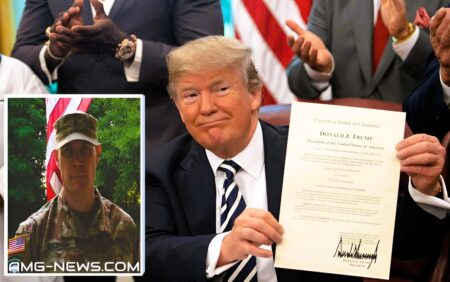
![BREAKING: CANADA IS TERRA NULLIUS! King Charles Admits ‘Unceded Land’ – Commander Trump Holds Legal Ground to Annex the 51st State [VIDEO]](https://amg-news.com/wp-content/uploads/2025/05/King-Charles-Admits-‘Unceded-Land-450x280.png)

1 Comment
How does a dead criminal get interviewed on television?